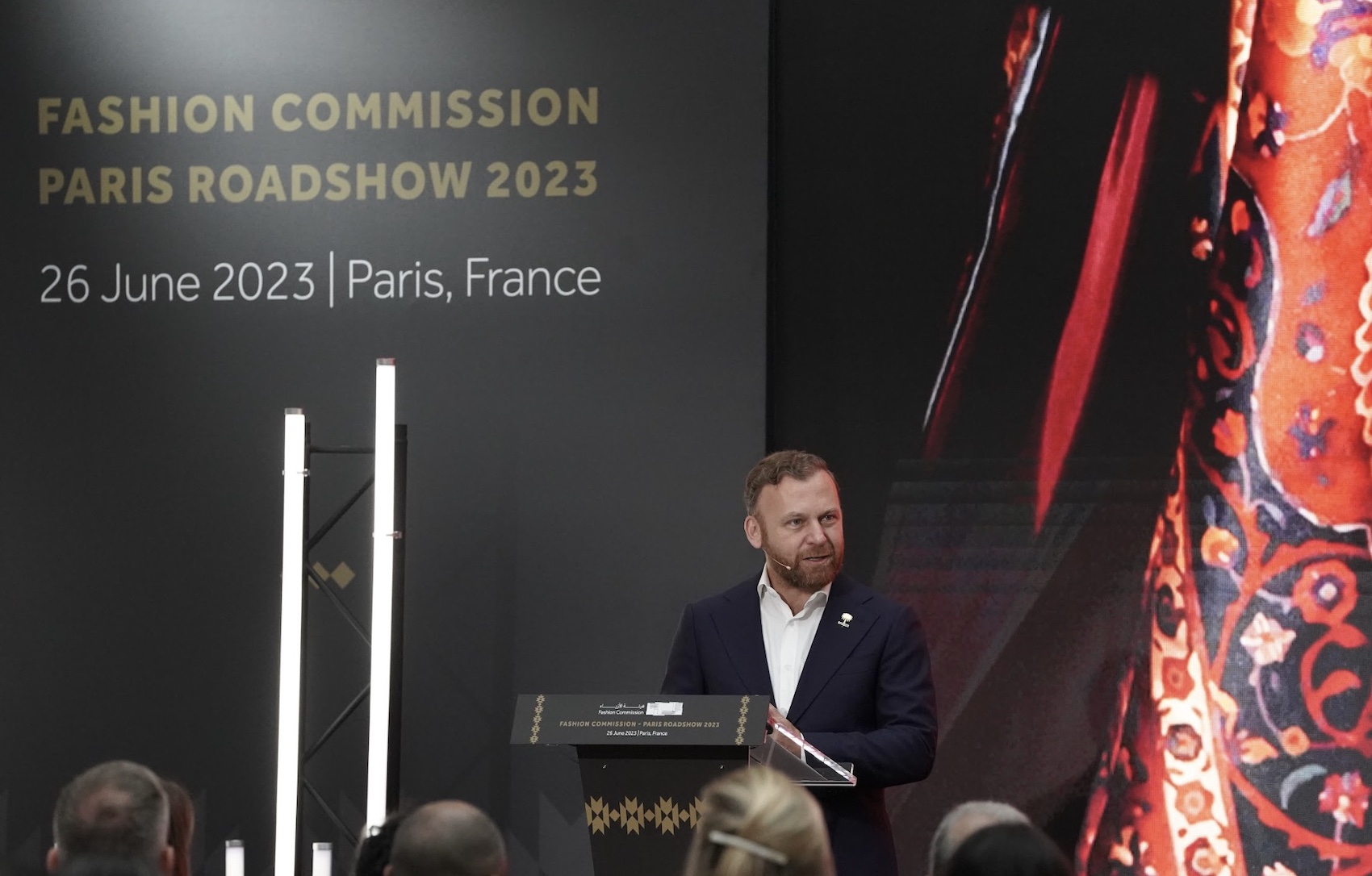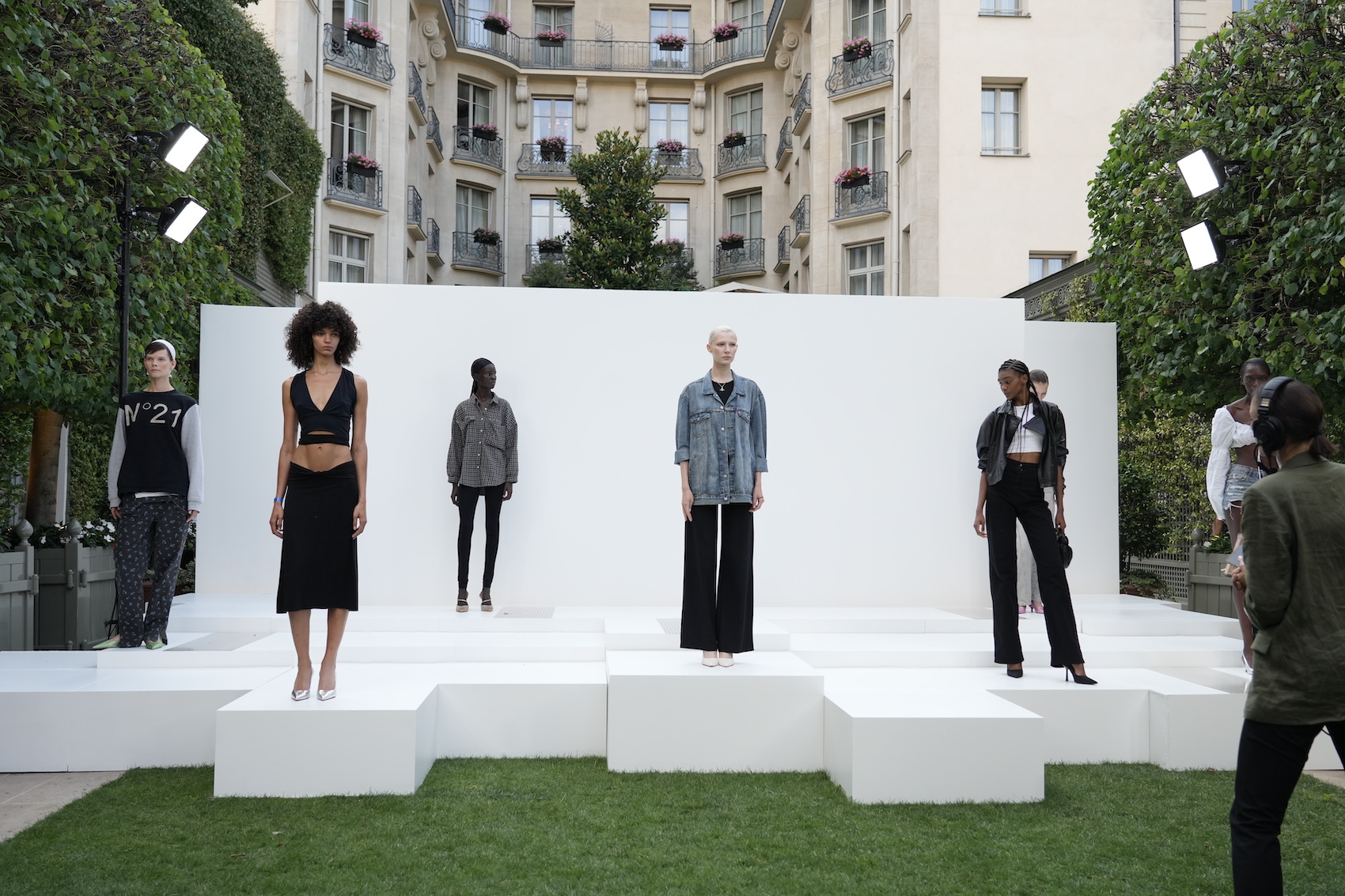AM: And how is it like being the CEO of a very promising Saudi Fashion Commission?
It's been thrilling to come here and learn. The fashion industry tends to be run by men, but Saudi Arabia has been a surprise because it’s women-owned. It's quite rare and they've been doing it for a long time here. Women feel empowered to create their business and they understand their community. The country didn't have the same format for retail so it's very customized. There's a closer relationship between the designer and the client. Even at the couture level, you can see a lot of small businesses that support themselves and aren't trying to be multi-million-dollar companies.
AM: What is the Saudi Fashion Commission currently working on?
We are looking at regulations and the growth of the fashion sector. We're in touch with all the international and local conglomerates. We want to build fashion communities in the country, we're creating associations. We are bringing in new innovations to support designers that will lead to understanding the demand. We want to potentially create partnerships to manufacture in our region. We're also investing in a research center for materials and recycling, not only for the needs of Saudi Arabia, but for the needs of the whole world. Sustainability is at the core of all of this. As an oil producing country, we want to make sure we're connecting the dots on all sides. We're even partnering up with universities to support research.
AM: Tell us more about the success of the Saudi 100 Brands Program
It has been a very proud achievement. Every year Saudi brands apply to this program that will accompany them to grow their businesses locally and internationally. We have a group of established and emerging brands, some are young, and others existed for decades. The objective is to equip them with a know-how to establish a solid identity, marketing and sales strategy. We organize workshops and consultations, and take them to forums and exhibitions abroad like New York Fashion Week, White Show in Milan and most recently to Paris. Everyone in the world is so intrigued to discover these hidden gems in terms of design, quality and passion.
AM: What was the strategy behind bringing the Saudi brands to Paris via different events and how is the impact measured?
The designers are a diverse group of brands and product categories, aged from 20 - 70, 85% female, some educated in top international design schools while others are self-trained. We needed to find a way to give our talented designers space to showcase their designs in the right setting and occasion, and in alignment with their product, business model, pricing and merchandising strategy – for example, the type of show and location that will work for streetwear will not necessarily work for couture.
To measure success, we will reflect on event attendance, the number of buyers introduced to brands, individual designer success stories (they have their own personal goals and were there to hold their own meetings and promote their businesses), the response from guests and the growing interest in Saudi fashion.
AM: The milestone that Ashi Studio has recently achieved as the first Saudi couture house on the Paris Fashion Week calendar is tremendous. Can we expect more brands in the upcoming seasons?
We have emerging couturiers who I have no doubt will one day be on the calendar. The Fashion Commission’s role is to mentor brands through our official programs, developing their creativity and supporting business development. When it comes to couture, Paris consistently provides inspiration to the brands, which made it all the more important that they experience the city. For our couture brands, we are focused on developing their technical skills and educating them on couture’s savoir-faire so they can further elevate their designs. At the same time, we are working on supporting the growth of their local customer base – Saudi offers a strong couture customer base for any brand operating in this category globally.




